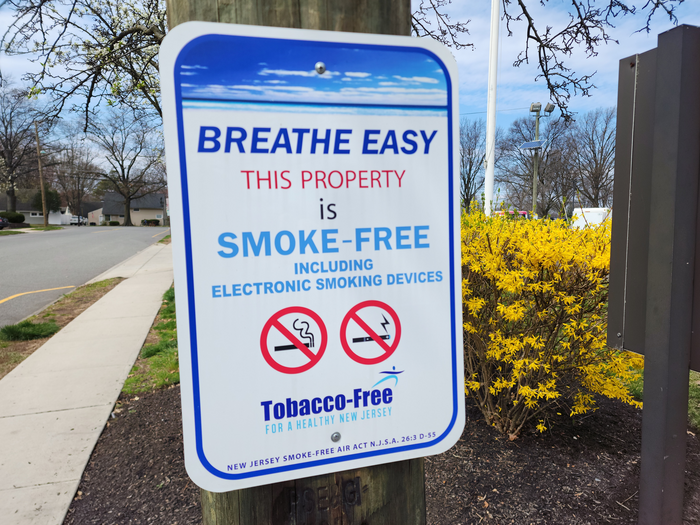PISCATAWAY, NJ—Getting many adolescents and young adults to stop using e-cigarettes may be as simple as doing away with flavored versions of the product, according to new research in the Journal of Studies on Alcohol and Drugs. This study suggests that a large majority of current users may discontinue their use if the product became available in the tobacco version only.

Credit: Journal of Studies on Alcohol and Drugs
PISCATAWAY, NJ—Getting many adolescents and young adults to stop using e-cigarettes may be as simple as doing away with flavored versions of the product, according to new research in the Journal of Studies on Alcohol and Drugs. This study suggests that a large majority of current users may discontinue their use if the product became available in the tobacco version only.
“The restriction of the availability for certain e-cigarette e-liquid flavors has been considered by various regulatory agencies,” says senior study author Alayna P. Tackett, Ph.D., assistant professor at the Center for Tobacco Research at The Ohio State University Wexner Medical Center. “Our team was interested in surveying youth and young adults to understand their thoughts on what choices they might make should regulatory policies only allow menthol and/or tobacco flavors in e-cigarette e-liquid products.”
Tackett and her colleagues used a national convenience sample of 1,414 e-cigarette users between ages 14 and 21. All had used the product at least once per day in the 30 days before completing the survey. They were asked about which flavors they typically use (the options were tobacco, menthol, cool mint, fruit ice and fruit/sweet).
When asked what they would do if a hypothetical federal regulation meant that tobacco and menthol-flavored e-liquids were the only options available, 38.8% of respondents said they would discontinue e-cigarette use. That number jumped to 70.8% if tobacco became the only option. Adolescents and young adults who preferred vaping fruit or sweet flavors were most sensitive to either restricted scenario compared with other flavor preferences.
Tackett also found it interesting that adolescents and young adults using flavors with cooling additives (such as fruit ice) reported higher odds of discontinuing use under a tobacco-only product standard, compared with menthol flavor users, indicating an important distinction between these groups. (Fruit ice are e-cigarette flavors that have a fruit base characterizing flavor with a cooling additive such as menthol or a synthetic cooling agent.)
“In this sample of adolescents and young adults, it appears that non-tobacco flavors may be important for their interest in and continued use of e-cigarettes,” she said.
It is unknown if the current self-reported intentions would extend to actual behavior in the natural environment and how this may impact use or uptake of other tobacco products. Future research might benefit from examining this scenario in areas or states that have enacted a flavor restriction policy, as well as from using a more representative sample (the convenience sample used was majority White and majority female).
Cigarette smoking remains the leading cause of preventable death in the United States. Tackett says preventing use of e-cigarettes among young people is a crucial goal for public health, but she also points to the potential impact of e-cigarette regulation on adults who smoke and have begun using e-cigarettes as an alternative to quitting altogether.
“Many adults prefer using non-tobacco flavors to switch from combustible cigarettes to e-cigarettes,” says Tackett. “Flavor restriction policies should consider the best ways to protect public health while also supporting adults who are interested in choosing potentially less harmful alternatives to combustible cigarettes.”
—–
Sidhu, N. K., Lechner, W. V., Cwalina, S. N., Whitted, L., Smiley, S. L., Barrington-Trimis, J. L., Cho, J., Wagener, T. L., Leventhal, A. M., &. Tackett, A. P. Adolescent and young adult response to hypothetical e-liquid flavor restrictions. Journal of Studies on Alcohol and Drugs, 84, 303–308. doi:10.15288/jsad.21-00466
—–
For interview requests with Dr. Alayna P. Tackett, please contact Amanda Harper at [email protected].
—–
The Journal of Studies on Alcohol and Drugs is published by the Center of Alcohol & Substance Use Studies at Rutgers, The State University of New Jersey. It is the oldest substance-related journal published in the United States.
—–
The Journal of Studies on Alcohol and Drugs considers this press release to be in the public domain. Editors may publish this press release in print or electronic form without legal restriction. Please include a byline and citation.
—–
To view the public domain, stock-photo database of alcohol, tobacco and other drug-related images compiled by the Journal of Studies on Alcohol and Drugs, please visit www.jsad.com/photos.
Journal
Journal of Studies on Alcohol and Drugs
DOI
10.15288/jsad.21-00466
Method of Research
Survey
Subject of Research
People
Article Title
Adolescent and Young Adult Response to Hypothetical E-Liquid Flavor Restrictions
Article Publication Date
4-May-2023
COI Statement
The authors declare no conflicts of interest.




